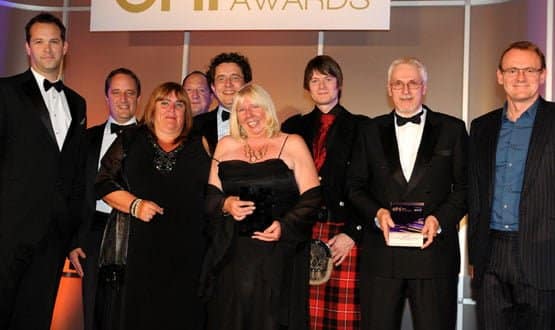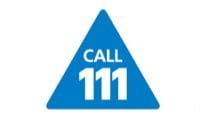EHI Awards 2011: Direct and to the point
- 14 February 2012

Launched in 1997, NHS Direct’s health information and advice line has seen call volumes increase by 20% a year, on average. The line now handles around 5m calls each year, while NHS Direct’s web services are used more than 8m times.
Faced with this ever-increasing demand, NHS Direct recognised the need for a more cost-effective online offering – to enable the faster deployment and provision of personalised advice to site visitors, and to increase capacity and resilience during major peaks in traffic.
For this, it needed appropriate service delivery partners. In December 2009, it appointed InferMed as prime contractor in a consortium comprising Rackspace, Sitecore and Eduserv to provide a fully managed service and to rebuild its web and digital health services.
NHS Direct had already started to develop health and symptom checkers to encourage patients to seek advice online. As well as providing specialist guidance on issues such as contraception, pregnancy and mental health, these covered common medical problems, ranging from colds and flu to sexual health matters.
The health and symptom checkers work by asking online enquirers a series of questions. Depending on the responses, they are then offered self-care advice on managing their symptoms at home – or the system may suggest seeking further advice from another healthcare provider.
If a further assessment is recommended, a call back from an NHS Direct nurse advisor is literally a click away.
Extensive testing
InferMed’s task was to improve the service using its Arezzo clinical decision support technology and to develop a new platform for the NHS Direct website to host it.
Arezzo simplifies complex clinical protocols and guidelines, presenting them as personalised care treatments in real time via public-facing digital channels – web, mobile and digital TV.
These can then be used for: patient self-diagnosis; by nurses in triage phone centres; by GPs in primary care; by clinicians in secondary and ambulatory practices; and by specialists during pharmaceutical research trials.
“The Arezzo technology at the heart of NHS Direct’s upgraded service helps patients identify the course of action or treatment appropriate to their symptoms,” says InferMed chief executive Duane Lawrence.
“After posing some interactive questions about their condition, it then generates a recommendation as to the next action they should take. Where multiple outcomes are possible, Arezzo presents the most appropriate to the patient, along with the reasons for that recommendation.”
Significant savings
The system went live in July 2010, and now provides more than 40 health and symptom checkers, covering a wide variety of symptoms and conditions, with new ones being added regularly.
These tools now have more hits per day than calls coming into NHS Direct’s call centres, as patients increasingly choose to access health advice online. Moreover, the new services are being syndicated to NHS Choices and several consumer health sites in order to achieve maximum reach.
NHS Direct reports that, during last year’s 14-day Christmas period, its telephone and online services were used more than 830,000 times, with over half of those contacts via the online health and symptom checkers. What’s more, it claims growth in their usage increased by 23.8% between August 2010 and August 2011.
In response to the growing popularity of smartphones, in May 2011 NHS Direct also launched a version of the initial assessment health and symptom checker, optimised for mobile browsing, plus apps for iPhone and Android mobile devices.
These apps are now accessed around 5,000 times each day and were used more than 1m times in the first six months after they were launched.
“Making NHS Direct easier to contact helps ease the pressure on services in high demand, such as the ambulance services, A&E departments and GP surgeries, and helps lower the cost of providing high quality care,” says Roger Donald, associate director of multi channel at NHS Direct.
“It offers substantial savings for the NHS as web interactions cost just pennies compared to the cost of a GP interaction or an emergency ambulance.
“Initiatives like these also align with the wider NHS ambition to improve the choice available to patients when they need to access healthcare.
“From this solid base, patients can quickly and effectively self-assess an increasing number of common ailments from anywhere via the internet. Where required, they will be able to speak to one of our nurse advisors for further advice.”
The NHS Direct of the future
As well as supporting local, regional and national healthcare IT strategy, Donald says the project has enabled NHS Direct to achieve its main strategic goals. “It has moved us from being a telephone service to a digital one with huge benefits for patient access.
“The work of the NHS Direct and InferMed consortium teams is changing the way people interact with the NHS and paves the way for a new wave of patient self-help tools.
“Putting tools like these directly in the hands of individuals allows them to take more control over their own health and saves face-to-face medical services for those times when they are really necessary.”
Lawrence, too, believes the consortium has helped lay the foundations for the NHS Direct of the future. “By integrating personal health records, existing drug regimens and expert medical guidelines, Arezzo not only helps hard-pressed doctors in consulting rooms, but also supports their patients at home in the management of chronic conditions and early detection of diseases such as cancer,” he says.
“These new clinical assessment tools are a forerunner in the way people will interact with the NHS in the future and represent the foundation of digital remote care. Having been made available via the web, then on mobile devices, these services will soon be accessible on wider channels such as IPTV and even games consoles,” he concludes.

The EHI Awards 2012 in association with BT will take place on 4 October. Details of this year’s categories and how to enter will be announced in March. If you would like to sponsor an award, please contact Neil Hadland.



